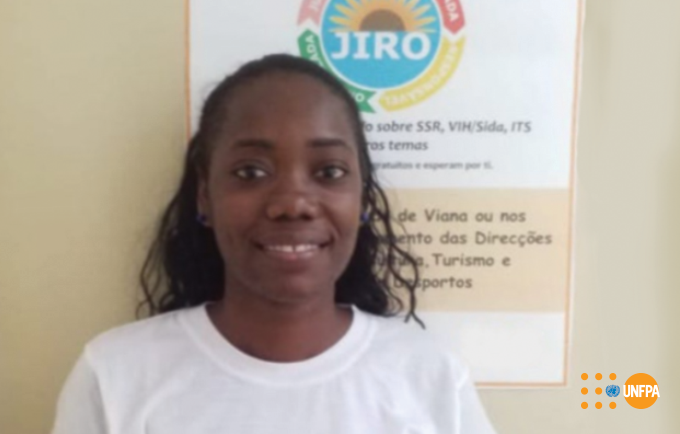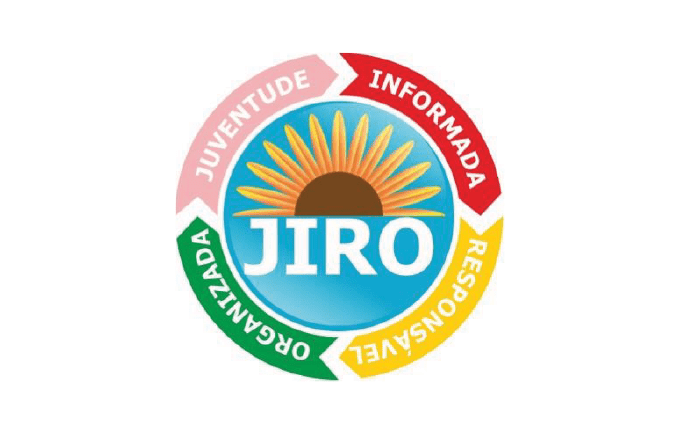JIRO and UNFPA Program, 17.370 Angolan youth participated in activities regarding sexual and reproductive health, HIV-AIDS and family planning

Angolan's population is young, 46.4% of Angolans are under 15 years of age and 65.9% are under 25.
Youth is the stage when the individual above all needs access to education, health, employment and information. Successive Governments have been promoting various programs aimed at providing young people with more and better conditions for participation in the country's social, political, economic and cultural life. It is in this context that the Angolan Government, through its Ministerial Department, designed the Youth Program Informed, Responsible and Organized (JIRO). A project led by the Ministry of Youth and Sports (MINJUD), supported by the United Nations Population Fund (UNFPA).
Between January and April 2021, the JIRO program reached 56.792 young people across the country. Of these, 17.370 participated in actions on sexual and reproductive health, HIV-AIDS and family planning.
Edna Cazengue didn't know what JIRO was until she was infected by the enthusiasm of a friend. “I was invited by a colleague of my sister who told us about the project. I found it interesting and started to attend the meetings of the JIRO friends in Viana, at the Casa da Juventude”, she says. She immediately decided to act. “In 2019, I became part of JIRO and participated in my first training as an activist and so far I have done four courses. Today, I am a counsellor and HIV testing technician, and I am part of the new SMS Youth platform.”
Edna Cazengue's meteoric path in this project driven by MINJUD follows the growth of JIRO itself. The program is slowly being implemented across the country. This year, it expanded to the provinces of Zaire and Bengo, and to the municipalities of Gabela (Cuanza Sul), Cuango and Lucapa (Lunda Norte) and Ndalatando (Cuanza Norte). As the program grows - in May it will reach the municipalities of Luchazes and Léua, in Moxico - the need for trainers increases. Between January and April, 101 activists were trained. In total, 800 young people across the country have gone through the same training course as Edna Cazengue. All with a unique mission, as the activist says: “strengthen the skills of adolescents and young people, to choose healthy lifestyles and behaviours.” As she comments, "there are areas where young people don't have access to this information and they need lectures and counselling." Some of them, she acknowledges, "when it comes to sexuality, they still have some taboos, but all have shown an interest in learning."
In this way, Edna Cazengue sums up JIRO's great goal. On the one hand, improve information on pressing issues, including sexual and reproductive rights, prevention of teenage pregnancy and sexually transmitted infections, including HIV; on the other, to train young people so that they become activists and influence other colleagues. The task is arduous, but the path is being taken at an ever-increasing speed. Between January and April this year alone, the program reached 56,792 young people across the country. Of these, 17,370 participated in actions on sexual and reproductive health, HIV-AIDS and family planning. They also received condoms. In all municipalities in Luanda and other provinces, women's benches were held. During the March Women campaign, 8,000 young people (4580 boys and 3420 girls) got involved in various activities. The lectures reached 422 and the SMS Jovem program reached an impressive 44,000 young people.
Edna Cazange knows that behind these tough numbers there is work, a lot of dedication and enthusiasm. She knows that “the good activist is in the field”, in “training, participating in activities and meetings with the friends”, her favourite part. “Our motto is never standing still!”. And she complies with the rule to the letter. Motivated “by the project leaders” she met when she joined JIRO, incentives her to “help other people and contribute to changing the beliefs of other young people”. “JIRO has an impact on our lives, we have learned a lot within the project, we have even benefited from subsidies in some activities of these training”, she testifies.
The decrease in resources for sexual and reproductive health services has contributed to an increase in unwanted pregnancies, an increase in the unmet need for contraception, and the number of unsafe abortions and sexually transmitted infections. Hence, JIRO's actions are very important in the current context of COVID-19.


